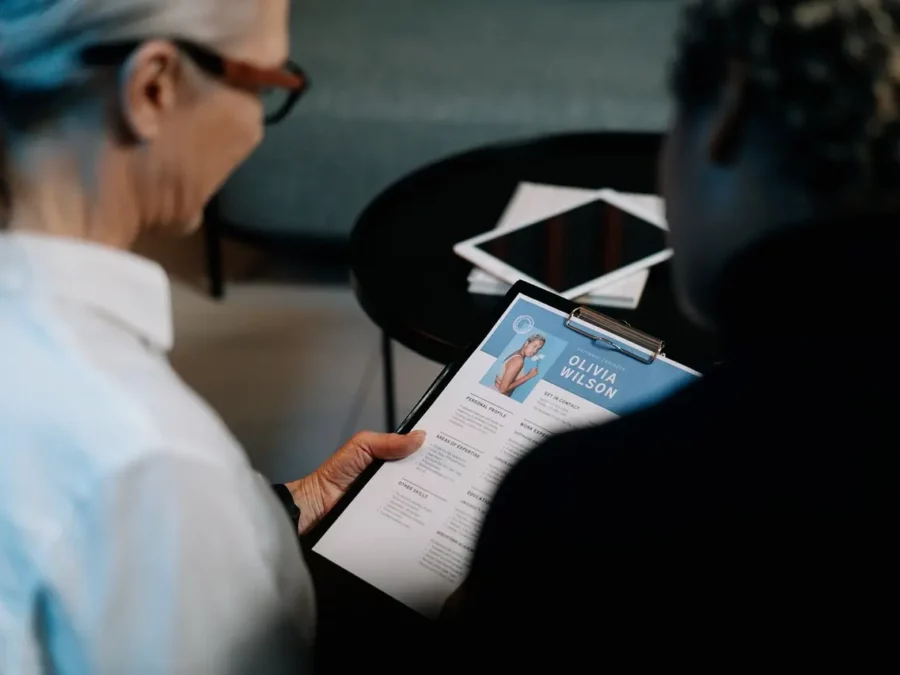Your CV is the most important way to present yourself to the labour market.
Your CV is the most important way to present yourself to the labour market. Research shows that recruiters take just a few seconds to decide wether a candidate is suitable or not, just by looking at their CV. That’s why you should make it a priority. Let us answer your questions and show you how to write a CV.
What Is A CV? – CV Meaning
Let’s start with the basics. CV stands for curriculum vitae, but that doesn’t mean it should just list your education and experience. A CV is your way of presenting yourself to the company. It is a chance to win the recruiter’s favour or lose the opportunity to enter the process.
Therefore, it is not limited to a list of previous jobs. Think of your CV as an opportunity to dazzle the recruiter. You must convince them that you can offer them everything they are looking for in the position. And in order to get that, you must talk about much more than your previous jobs.
Your CV is the first knock on the door of your dream job. Let’s make sure it sounds strong, confident, and gets you on your way. Want to know how? Read on.

CV Vs Resume – Which One Do You Need?
But first, are you sure you need a CV? Wouldn’t a resume be better? But… aren’t they the same thing? Well… it depends. The answer is not the same if you are applying in one place or another.
Let’s say you checked out our Job Search and you found job offers all over the world. Some of them ask for a CV, but others need you to send a resume. What should you send?
In Europe, CV and resume are indeed the same thing, so you should not worry too much. But outside Europe, especially in the United States, there are differences. In the USA, a CV (Curriculum Vitae) is a longer text used in academia. It includes the researcher’s experience, publications and other information. The resume is a different tip of text (usually one page long), used to present the qualities, experiences and background of a job candidate.
We guess that, if you are not in academia, you will most likely be looking for the latter. So, now that you know the differences, let’s move on to explain the best way to create one. Let’s write a CV (or resume!) that will get you into the job of your dreams.
Do’s – What Your CV Must Include
There are several basic sections that should always appear on your CV, whatever position you are applying for. Check it. Are any of them missing from your CV?
– Name, title and contact. Your contact details should include, as a minimum, a telephone number and email address. Sometimes it is useful to add social media.
– Purpose. A short paragraph explaining why you are the perfect candidate for the vacancy. Time to show off!
– Professional experience. It should be ordered with the most recent first. Add your job title, company name, dates and responsibilities. Take the chance to include any achievements you made. That time you organised an event for more than 100 people. The way you solved a huge problem in just 3 hours…
– Education. Include dates and organisation or university. If you graduated recently, expand on this section and give an account of your academic achievements – and you should definitely check out our post about entry level jobs! If you have more work experience, you can limit this to a list of the most relevant information.
However, there are other sections that may be of use to your CV. Please note that whether you include one or the other depends on your employment situation and the vacancy you are applying for:
– Languages. If you know more than one language, always include it. Try to tailor your level according to the one requested in the vacancy.
– Skills. Adding your hard and soft skills can be useful, but remember that they should be aligned with the offer. Try not to fall into clichés such as “team player” or “perfectionist”.
– Achievements. Adding any awards or recognition you have won is a good idea, as long as they are related to the position.
– Volunteering. It demonstrates social interests, which are highly valued in many jobs. However, consider whether it is relevant to the offer you are applying for.

Dont´S – Never Write This In Your CV
You already know what should appear on the perfect CV. But what should you remove from your CV right away? Well… more than you think:
– Hobbies. They should never appear without a compelling reason.
– Age.
– Marital status.
– Basic education.
– Photograph. It may be standard in some countries, but it is not used internationally as it can be discriminatory.
This will clear the CV of information that doesn’t contribute to the offer and give you room to highlight what’s really important – you’ll realise that making the most of space is key when writing your CV!
And If You Need CV Templates…
We know that creating a CV is not easy. But at Jobstoday.world we can help you. That’s why you have our CV generator at your disposal. With it, you can create your CV in a simple, uncomplicated way.
You can save up to 5 different CVs, so you can adapt them to the different job offers you are applying for. Remember our tips and you will have the perfect CV! Just register and you can create your CV free.
Need Inspiration? Check These CV Examples
Still unsure? We got your back! Take a look at our examples and discover how easy it is to create an effective CV – get inspired and be yourself! Demonstrating your skills is the key to a great CV. Go for it!
Now it’s time for you to find your perfect job offer with us. With your best CV, just send it away and landing the perfect position will be as easy as pie! Best of luck!
See more:
– Check out our post to find jobs near you.
– Don’t forget to read about the best paying jobs in 2022.




